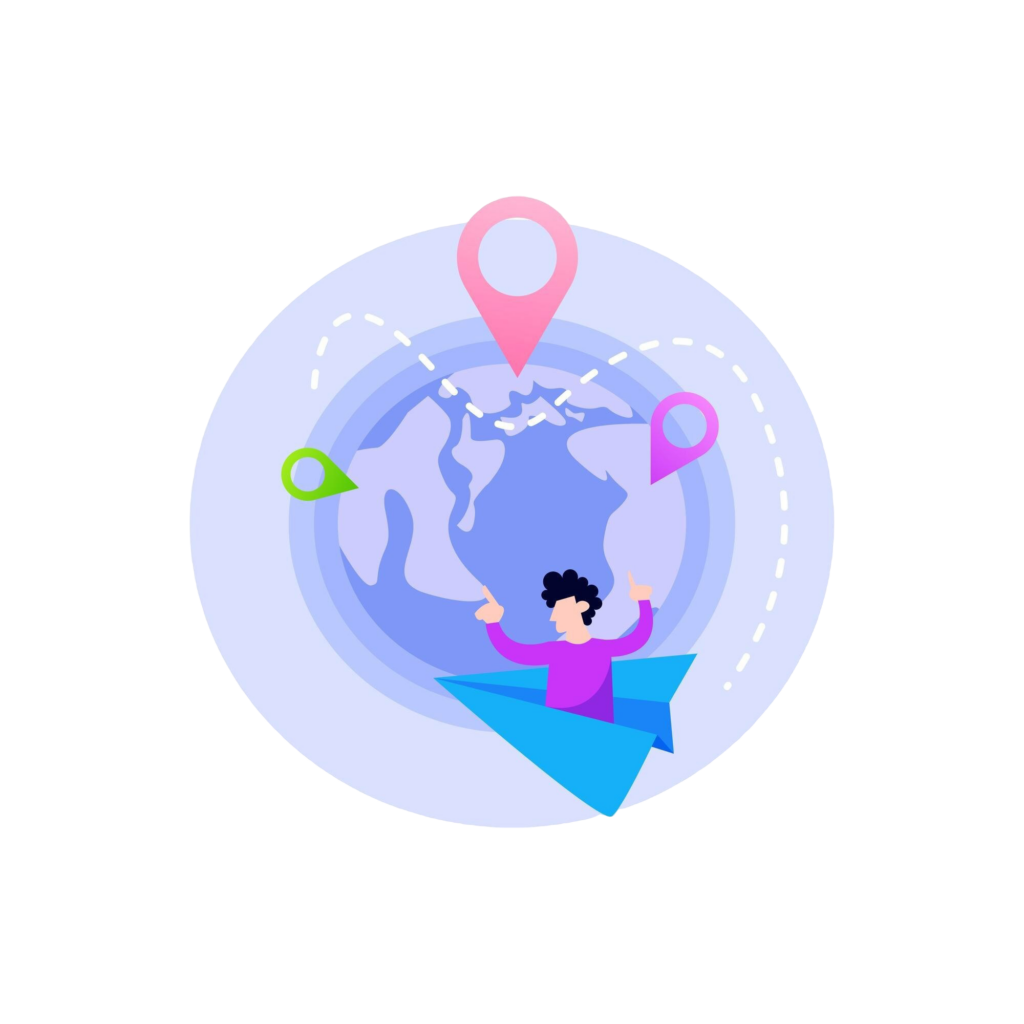
Table of Contents
The internet has made it quite easy to access information from other corners of the world, but it is nonetheless heavily controlled by geolocation rules that determine what should and should not be accessible from a certain location. Whether it’s a video streaming platform, news website, or online store, what you can access is very often determined by your IP address showing your location. The only way one can get around these restrictions and be allowed to access content as if one was browsing from another part of the world is through geotargeting with proxies.
Let’s take a closer look at exactly how proxies allow for geotargeting, why that’s an important function to both individuals and businesses alike, and most importantly, how proxies can facilitate access to content from any location in the world.
What is Geotargeting?
Geotargeting is a way in which diverse contents are delivered depending on geographical location. Most websites do geotargeting, ranging from simply displaying region-specific content, offering localized services, or even barring access either because of licensing agreements or legal limitations. Common examples include:
- Streaming Services: Various services like Netflix, Hulu, and BBC iPlayer will indicate the different types of libraries for different countries.
- E-commerce Websites: Online stores often change prices or the availability of products based on a user’s location.
- News Sites: Some news outlets limit access to particular articles or content based on the visitor’s country.
- Social Media and Messaging Apps: There are government regulations in certain regions that block or otherwise limit social media platforms and messaging apps.
How it works is that the system of geotargeting works by detecting your IP address, which reveals to them your approximate location. If you fall outside the allowed region, you may get blocked from accessing particular content.
How Proxies Allow Geotargeting

Proxies let users get around such geotargeting by obscuring their IP address and replacing it with one from another region. You route your online activities through a proxy server based in the country of your choice; this makes it seem that you are accessing the Web from that country. This works as follows:
- Connecting to a Proxy Server: How this works is that your internet traffic goes through a proxy to reach the website you are trying to access. The website thinks this traffic is coming from the proxy IP address, not from your actual IP address.
- IP Address Substitution: The website believes that you are accessing the website from the very location where the proxy server is located because it has that IP address. This way, you can access content that otherwise would be restricted.
- Accessing Region-Locked Content: You will be able to browse, as if you were living in the area of the proxy after establishing a connection with the proxy server, which means accessing geo-restricted content and localized services.
Benefits of Using Proxies for Geotargeting
There are quite a few clear advantages of proxies for people and companies seeking to break through the wall of geographical restrictions and region-locked content:
- Access to Geo-Restricted Content
Proxies give users the chance to view region-locked content. For instance, travelers can watch their favorite shows on streaming platforms or sports fans can watch a live broadcast not available in their country. By choosing a proxy server in the correct region, users can unlock whole libraries of content which may be otherwise inaccessible. - Testing for Businesses Locally
This may be critical for businesses operating in multiple regions, testing how their website or application looks from other countries. Proxies let businesses perform this form of localized testing by routing browsing from specified geographic locations. This may be even more important for e-commerce platforms where pricing, availability, and promotions may vary depending on the region. - Better SEO Insights
SEO professionals use proxies to simulate searches from different locations for better insights. It helps track keyword rankings and analyze how your website fares over different countries, making it easier to fine-tune SEO strategies for international audiences. - Price Comparison and Market Research
Proxies make it easier to compare prices in different markets. In this regard, users toggle through the use of various proxy servers located in different countries to obtain prices specific to their regions, thereby making comparison shopping and researching of markets so much easier. - Bypassing Censorship and Government Restrictions
Some governments in different parts of the world implement tight censorship over Internet access to certain websites, social media, and other online services. Proxies help in keeping the users safe by routing the traffic to servers in countries that assure unrestricted access. - Enhanced Privacy and Security
Proxies also offer an enhanced level of privacy through masking your actual IP address, making it very difficult for websites, advertisers, and hackers to track your online activities. This added cloak of anonymity protects personal information and helps prevent third parties from collecting data on browsing habits.
Types of Proxies for Geotargeting

Not every proxy created is equal for the purpose of geotargeting. Some are suited better for reaching region-specific content rather than others:
- Residential Proxies
Residential proxies utilize IPs assigned by ISPs to real households. As a result, these proxies have very high anonymity and seldom get detected or blocked by websites. This makes them perfect for the job when it comes to unblocking geo-restricted content. - Data Center Proxies
Datacenter proxies are faster and cheaper than residential proxies but are more easily detectable because they originate from large data centers instead of residential homes. Working well for basic geotargeting tasks, they could be blocked by more sophisticated sites such as those used for video streaming . - Rotating Proxies
Rotating proxies offer a pool of IP addresses that are cycled via each request, or set intervals. These are mainly good for avoiding rate limits and bypassing restrictions to geo-restricted content, with broad usage in web scraping and market research.
Challenges and Limitations
While proxies stand in for a remarkably effective way of performing geotargeting, there are a few challenges and limitations:
- Website Detection: Most websites, especially those into streaming, have designed algorithms to detect the usage of proxies and subsequently block access. Good quality residential proxies do help, but this is still a problem with many users.
- Speed and Latency: This involves connecting your system with a proxy server that might be far, far away from where you are. This would reduce your connection speed and increase latency, probably affecting activities like streaming or online gaming.
- Cost: High-quality proxies can be much more costly than data center proxies, most especially residential or rotating proxies. This may be a point of concern for users requiring region-specific content consistently.
Why Proxymint is the Perfect Solution for Proxy Challenges
At Proxymint, we offer the ideal solution to overcome common proxy limitations:
- Website Detection: Our high-quality residential proxies ensure uninterrupted access by bypassing advanced detection systems.
- Speed & Low Latency: Proxymint’s optimized infrastructure ensures fast, low-latency connections for tasks like streaming and online gaming.
- Cost-Effective: We offer competitive pricing for premium residential and rotating proxies, ensuring access to region-specific content at an affordable rate.